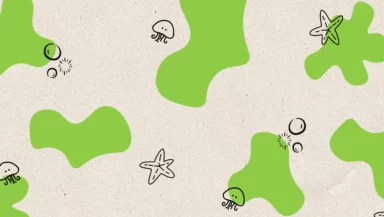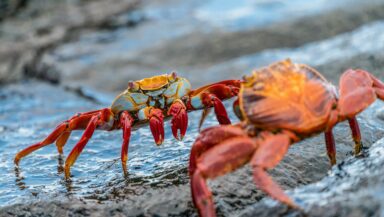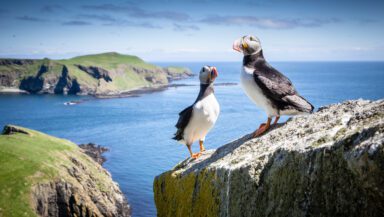In the North Sea in 2020 and in the English Channel in 2021, our oceans team dropped inert granite boulders from the Greenpeace ship Esperanza into offshore UK marine protected areas to stop destructive fishing vessels called bottom trawlers from damaging them.
Bottom trawling effectively ploughs the sea bed destroying everything in its wake. You wouldn’t generally expect the government to allow ‘protected’ ecosystems to be ploughed. A chunk of carefully placed granite, with its location publicised on admiralty charts, can make the seabed a lot less attractive to plough.
Giving the government a hand
We use a broad range of tactics at Greenpeace but carefully planned, peaceful direct action that actually stops environmental abuse from occurring is often the most effective work we do. This particular action happened because the Marine Management Organisation (MMO) – the government body set up to “protect and enhance our precious marine environment” – didn’t seem capable of protecting the protected areas.
This is both vitally important and urgent, and we thought perhaps they’d like a hand. As it turned out they took umbrage. Instead of thanking us they took Greenpeace, and me, to court, in a private prosecution for unlicensed dumping at sea.
We’re not entirely inexperienced when it comes to defending our direct actions in court, but this case had the novelty of being brought not by the people whose destructive fishing we stopped, but by the people who are supposed to stop destructive fishing.
I’ll spare you the details of the legal process – they’re fascinating to me, but trials, like poker games, can be a lot less interesting when it isn’t your shirt at stake. The bit I’m hoping might interest you is a statement from the judge, delivered in a hearing held in January 2022 in response to a motion by Greenpeace’s lawyers to have the case dismissed.
On the technical points of law raised, the judge ruled in favour of the MMO – they had jurisdiction, the prosecution could proceed to a criminal trial by jury if they so wished. But the judge also asked the MMO to review whether their decision to do so was in the public interest, and that’s where things started to look up for us.



